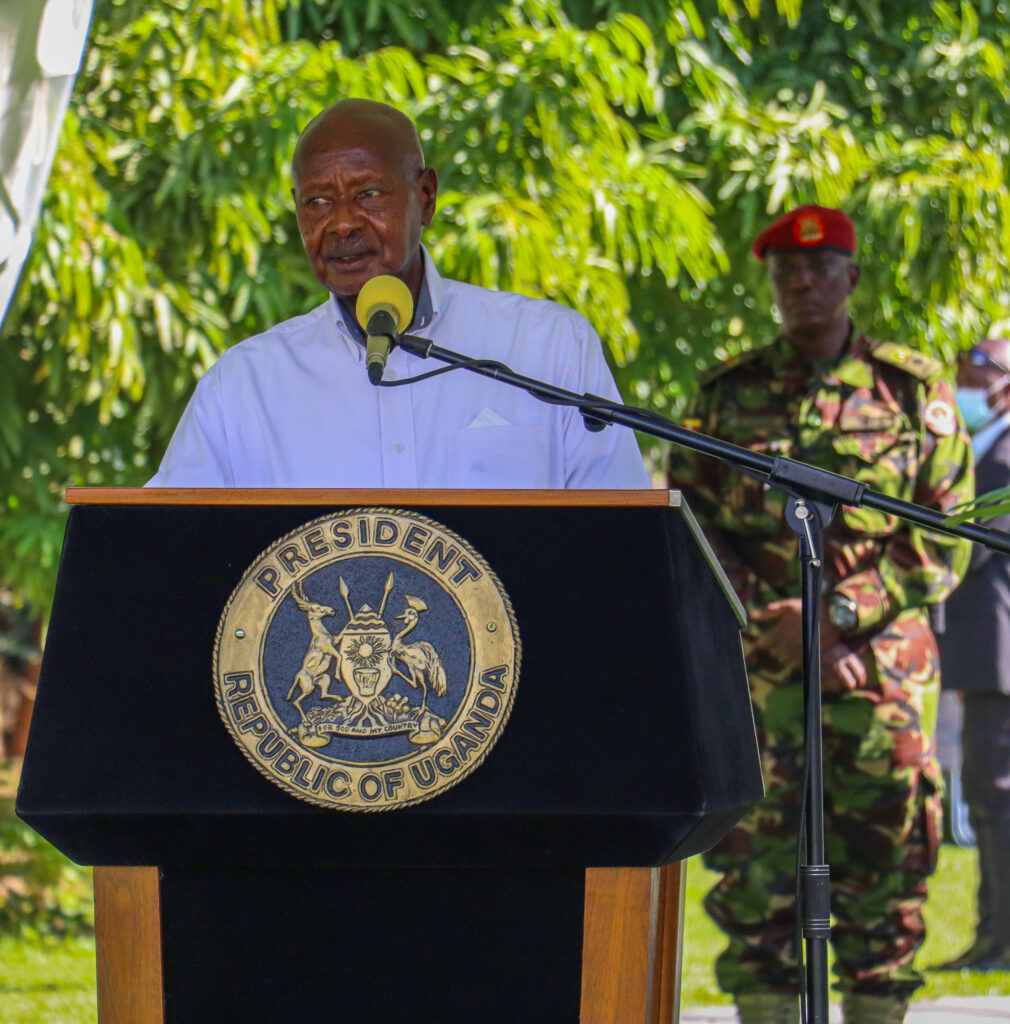
KOLOLO.President Museveni has declared that the economy has taken off and rallied government technocrats and leaders at all levels to match financial allocations with performance and accountability.
The Shs 72.376 trillion budget was delivered under the theme: “Full Monetization of the Ugandan Economy Through Commercial Agriculture, Industrialization, Expanding and Broadening Services, Digital Transformation and Market Access”.
In fulfilment of Article 155(1) of the Constitution and on behalf of the President,Mr Matia Kasaija, the Minister of Finance, Planning and Economic Development, presented the Budget for the Financial Year 2025/26 to Ugandans as approved by Parliament.
The ceremony took place at Kololo Ceremonial Grounds.
Referring to the Finance Minister’s presentation, the President said: “Here the size of Uganda’s economy is now $61 billion by the exchange rate method and $174 billion by the purchasing power parity method. Given our population, which is about 45 million Ugandans, we are no longer a least developed country. We are now a lower middle-income country.”
President Museveni emphasized economic stability indicators that signaled progress as indicated by the Finance Minister stating: “GDP growth, and price stability: Are the prices stable or not? Currency stability, is the currency stable or not? Are jobs being created or not? Are export earnings going up or not? And finally, are foreign direct investments coming in or not? I thought we should note that.”
President Museveni underscored that in 1986, Uganda’s GDP was just $3.9 billion noting that, “You can see the economy has grown more than 20 times, I thought you should mark that, because in a long speech like this you may not notice the big picture.”
This year’s budget is anchored in the Fourth National Development Plan (NDPIV) 2025/26–2029/30, with strategic investments categorized into ATMs priority sectors such as agro-industrial development, tourism, minerals (including oil and gas), ICT
and “Enablers” which are public infrastructure and services critical for business growth.
But beyond the numbers and planning frameworks, President Museveni used his address to spotlight mismanagement and inefficiencies in budget execution, warning that Uganda’s transformation cannot be undermined by negligence.
“I heard the veterans of Luweero in Lyantonde on Heroes Day raising issues. When I checked, we had already provided Shs 218 billion or something like that for the kasimo, and it was flipped to be Shs5 million for elders each and Shs1 million for the supporters. So, what happened to this money?” President Museveni asked.
He demanded clarity on the long-standing cattle compensation for conflict-affected regions.
“For Teso, Lango, Acholi, we have always spent Shs 200 billion on that, and we have already budgeted Shs 80 billion. So, leaders, follow up that money.”
The President also turned his attention to public investments in sports saying, “Then you get things like stadiums. The National Council of Sports needs to explain to us. I hear some money has gone to Kakyeka and a number of them to do some work, others are going to be done massively, and so on. So, the Council of Sports should also explain and brief Maama about this money.”
On matters of security, President Museveni issued a stern warning about growing misconceptions over digital number plates.
“I saw some issues about the digital number plates, that people are being fined. I don’t know for what, but the issue about the number plates is not about fines. It’s anti-crime,” he said.
Citing the recent murder of Wayengera Godfrey, 45, a resident of Namumira village in Mukono town, who was killed on June 10, 2025, President Museveni said, “I can’t accept our Ugandans dying because of incomplete infrastructure. Remember when I addressed you in Parliament in 2019, I told you about the cameras you were there with your policemen asking, “Ani eyamulabye?”
He explained that the digital number plates are central to crime-fighting, not revenue collection.
“Let’s go technical. Let’s have smart means. They have helped us solve a number of things. These are digitized number plates with a central command not collecting fines and so on,” he said.
“I think the confusion about fines could be because we didn’t have money and we told these people to put number plates and recover money. The issue is about the number plate being diagnosed. Every vehicle must have a digital number plate traced by a central command to know which cars, which boda was in the area. The issue is not about money. No. It’s about security. They are acting with impunity. This is not about fines. It’s about security.”
The event was also attended by the Vice President, H.E Jessica Alupo, His Lordship Alfonse Owiny Dollo, the Chief Justice, Rt. Hon. Thomas Tayebwa, the Deputy Speaker of Parliament, Members of parliament, members of the Diplomatic Corps, among others.